Huntr Blog
13 Bad Resume Examples: The Worst Resumes to Avoid in 2025
April 15, 2024
Still not landing any interviews after applying to dozens of jobs? There could be a problem with your resume. A resume is your first impression with a hiring manager or recruiter. And sometimes, without even realizing it, we’ve got a bad resume and don’t even know it. Recruiters see countless resumes every day - so they know what a great resume looks like. But they’ve also seen the worst resumes you can imagine. This post will highlight some bad resume examples to help save you from making a resume that doesn’t land you in the interview pile.
Don't want to create a bad resume?
Use Huntr to build your resume, get instant feedback, and more.
13 Bad Resume Examples: The Worst Resumes to Avoid in 2025
1. The typo filled resume
The worst resumes are always those filled with typos. The grammar police will always discard a resume with spelling mistakes or grammatical errors. It shows a lack of attention to detail. When creating a resume, you’ll want to have someone you trust look over your resume to catch any typos or easy-to-scan grammar errors to ensure you give yourself the best shot of landing yourself a job. We get it. Not everyone is good at writing, especially if writing isn’t a core part of your job’s required skill sets. But that doesn’t mean the person assessing you isn’t going to judge you for it. These kinds of issues pop to a reader scanning a resume, which can serve as a distraction while assessing your competence for a role. Here’s a bad resume example when it comes to the typo filled resume.
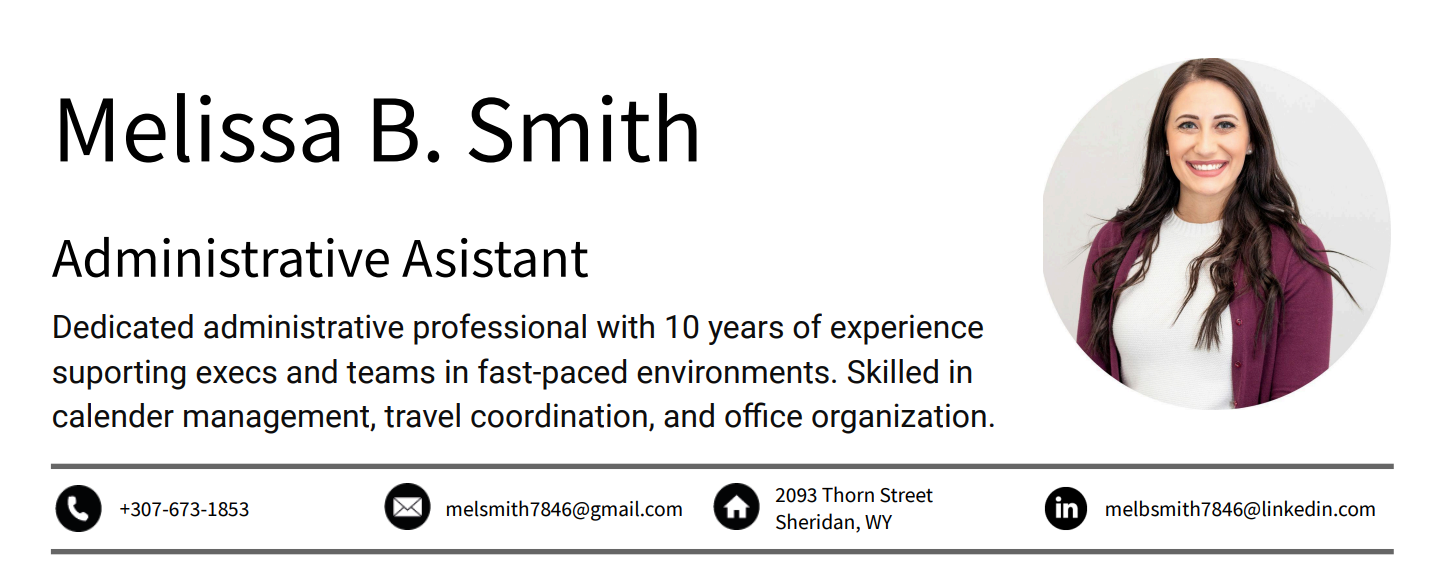
2. The AI takeover resume
In 2025, AI is all the rage. But if you take a quick look at the average recruiter's posts on LinkedIn, it’s obvious that some people are taking it a little too far. Recruiters get a ton of AI resumes that lack the personalization they need to make the best hiring decisions. Injecting a few AI bullet points can ensure you cover your bases when highlighting your core skill set and professional accomplishments. But if you’ve got a resume that’s 100% written by AI, you’ve probably got a bad resume. It’ll lack the personality, key accomplishments, and tidbits that accurately reflect your own work experience to make you truly shine. It also shows a lack of effort, so those recruiters scanning your resume will truly wonder, “how much effort will this person put into their job?” You need to tailor your resume for a job, but if you’re just regurgitating the exact same sentences into your resume, it’s probably a bad resume. The worst resumes won’t highlight what makes you and your accomplishments exceptional.
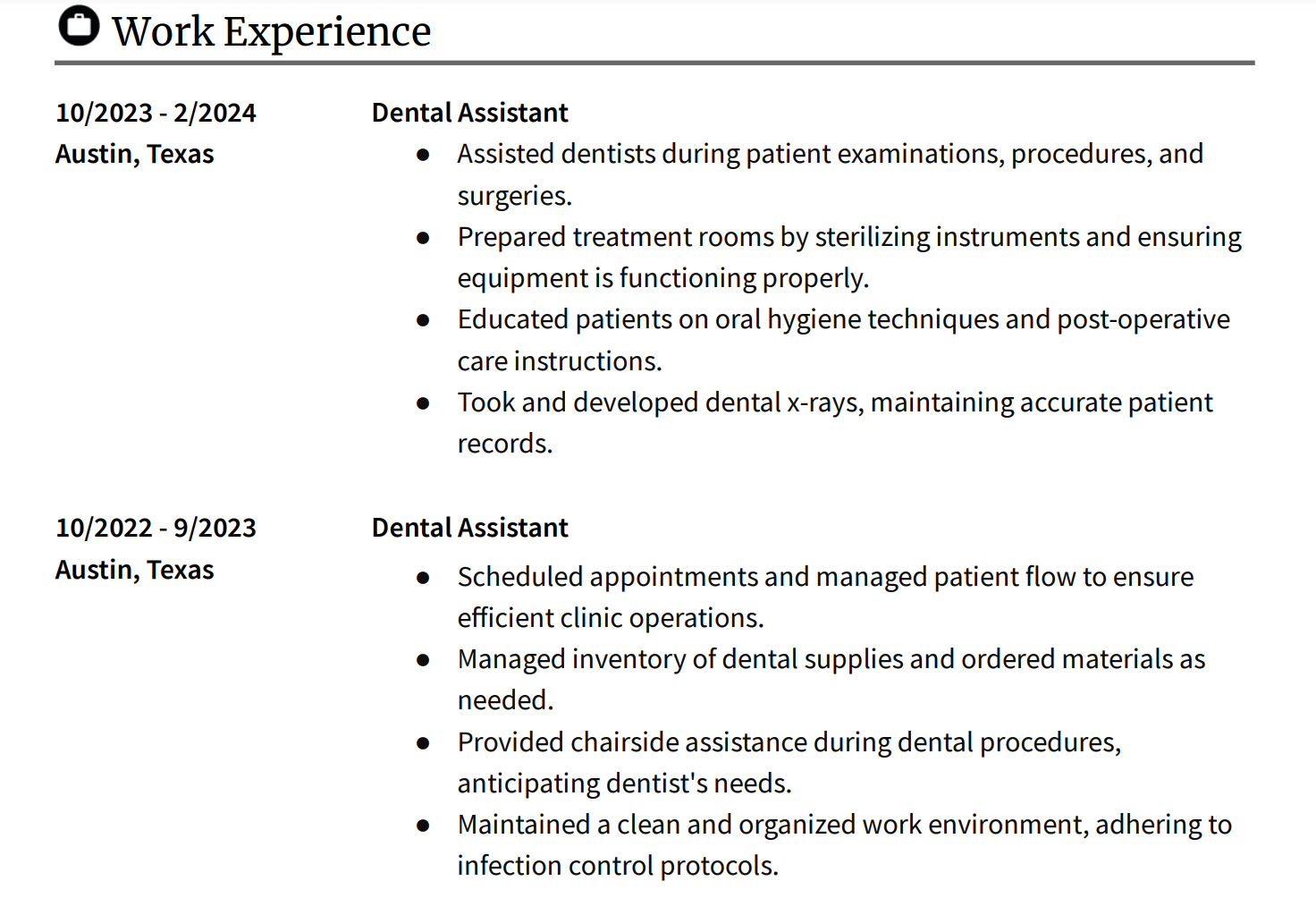
3. The overly designed resume
It might be hard to believe, but the worst resumes aren’t the simple black and white ones. Those often perform pretty well because they’re easy to read and scan. However, with everyone trying to stand out among other job seekers, there’s a growing trend to have overly designed resumes with photos on them. However, photos on resumes can often lead to discrimination or present bias during the interview process. Some people will add graphs or charts on their resume to present information in a novel way, but in the end it takes up valuable space for you to better highlight your key accomplishments. An overly designed resume can distract hiring managers from seeing your potential. There’s just too many gimmicks on the page for them to see what you truly offer to help you land that role. Here’s a bad resume example from a design perspective.
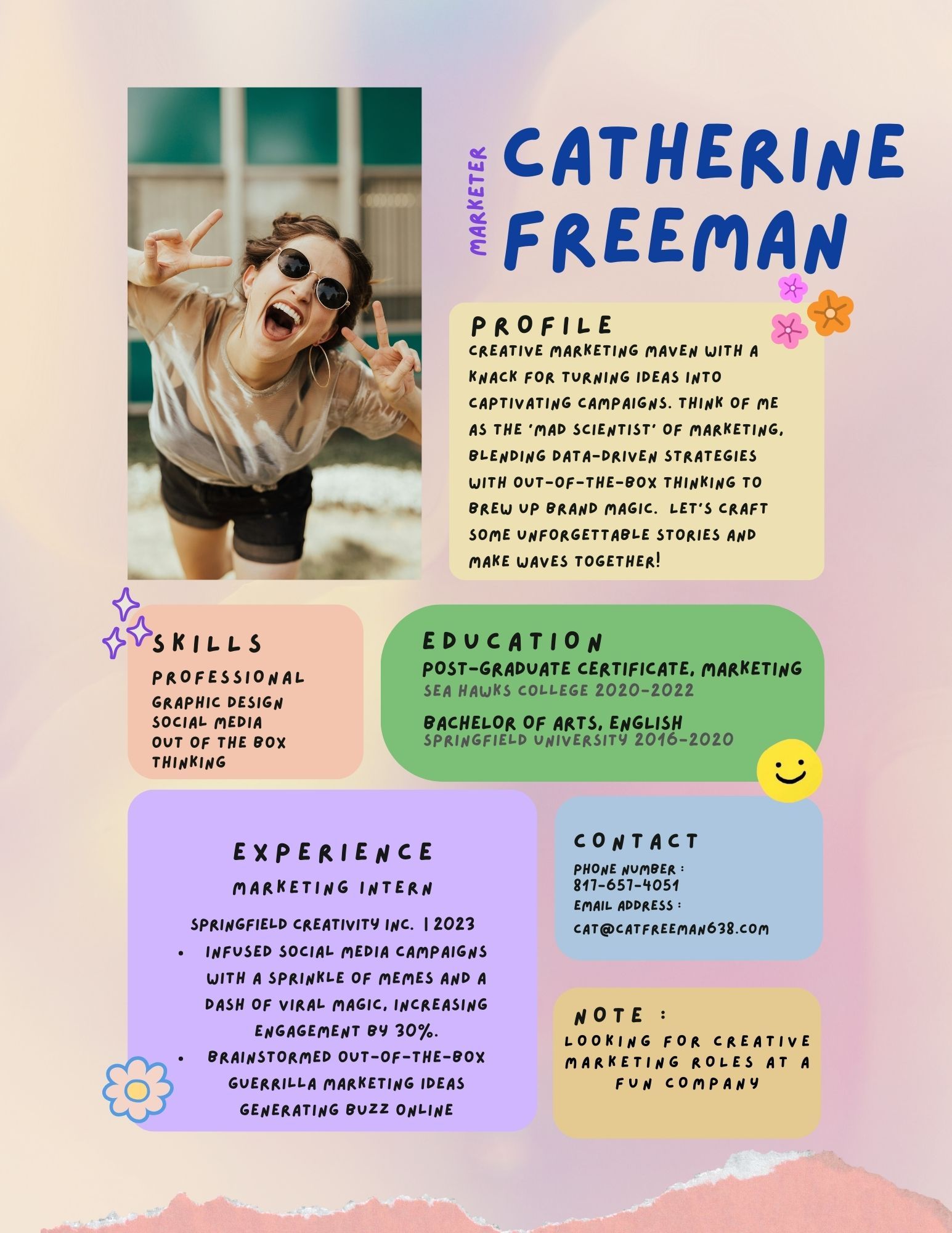
4. The task-driven resume
The bullet points you add to your resume should focus on key achievements you had in your previous roles. This is the place to sell yourself as the perfect candidate. By framing bullet points as achievements with data, you help recruiters imagine what you could do. A bad resume will often only add tasks instead of achievements. It’ll list the work you did rather than the result of the work you did. It ends up coming across as boring, unoriginal, and unimpressive to a recruiter. The worst resumes will include tasks completed in bullet points with no call outs to any data, key metrics, achieved goals, or results.
5. The bad font choice resume
One of the main goals of a resume is to convince someone it’s worth reading. You want a resume that’s scannable, easy-to-read, and lands you in the interview pile. Bad resumes will include unreadable fonts. In fact, the worst resumes will use unreadable fonts, which makes it impossible for a recruiter to read. Most recruiters will look at your resume for a few seconds before making a decision on whether or not to call you. If hard concentration is required to read past the comic sans or weirdly cursive font, the recruiter will simply give up and reject the candidate. Even if all the content on the resume is top tier, you’ll be overlooked. You need to choose standard fonts like Arial, Helvetica, Times New Roman, or some other easy to read font. Avoid cursive or any non-traditional font when choosing the best font for your resume.
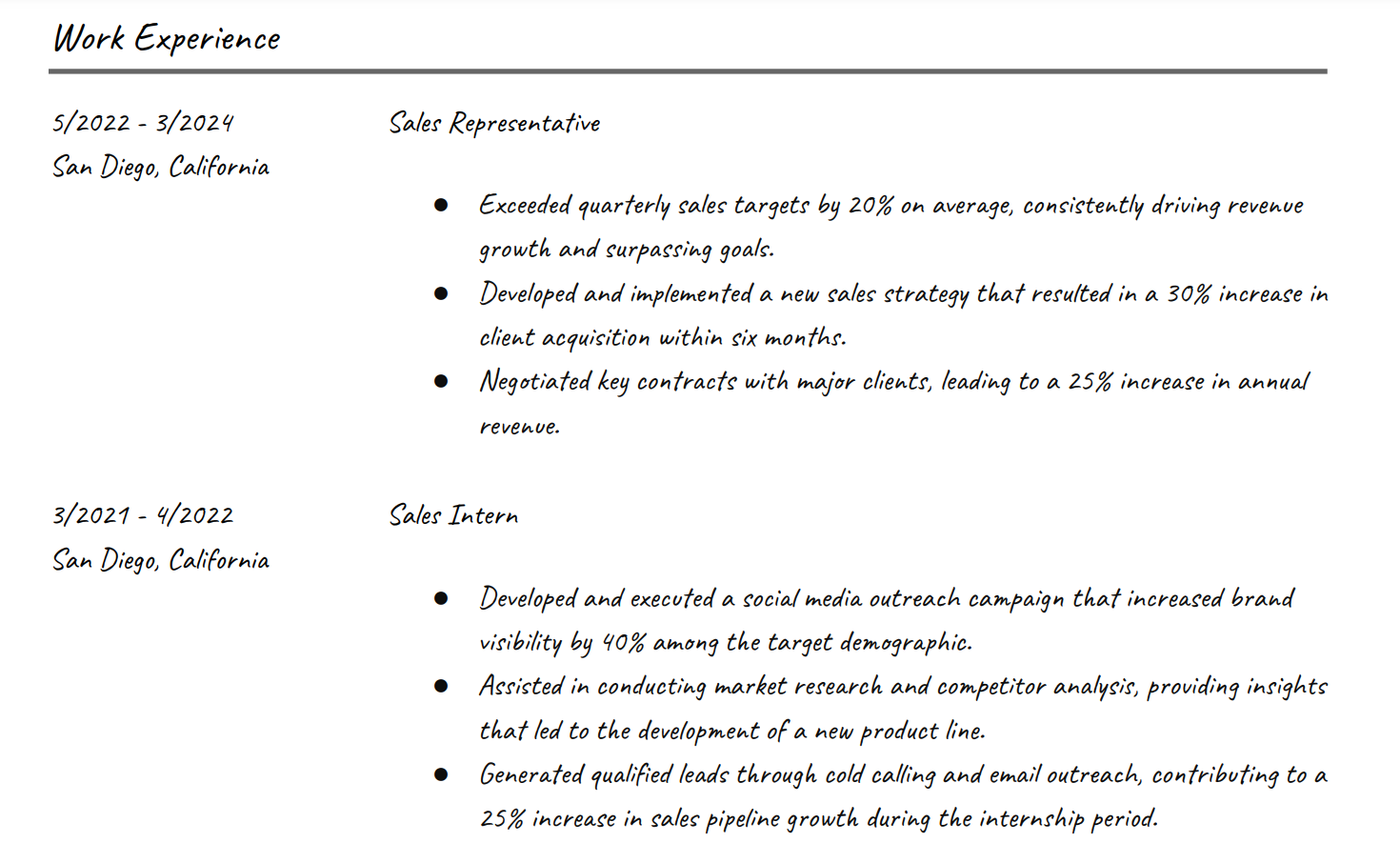
6. The Linkedin resume
Your LinkedIn profile includes all of your professional work experience. Your resume shouldn’t. Using Huntr, you can import your entire LinkedIn work experience into Huntr’s resume builder. But you should actively remove the work experiences that aren’t relevant to the positions you’re applying to. A bad resume includes pages and pages of professional experience that no recruiter has the time to read. The ideal length of a resume is one page and two pages max. You don’t need to tell the story of your entire work history. Keep it simple by focusing on the key experiences that make you most qualified for a job. The worst resumes are too long and include way too much professional experience that isn’t tailored or optimized for the role.
7. The buzzword overload resume
Including too many buzzwords can have a counterproductive effect on how you’re perceived. You also don’t want to use too much jargon, acronyms, or any other flashy words to make yourself sound like a “superstar hire.” The buzzwords people use the most include things like hard worker, perfectionist, innovative, creative, results-driven, and so on. Unless your accomplishments can warrant the buzzwords, you should actively avoid including them. Find alternative ways of saying and showcasing your qualifications.
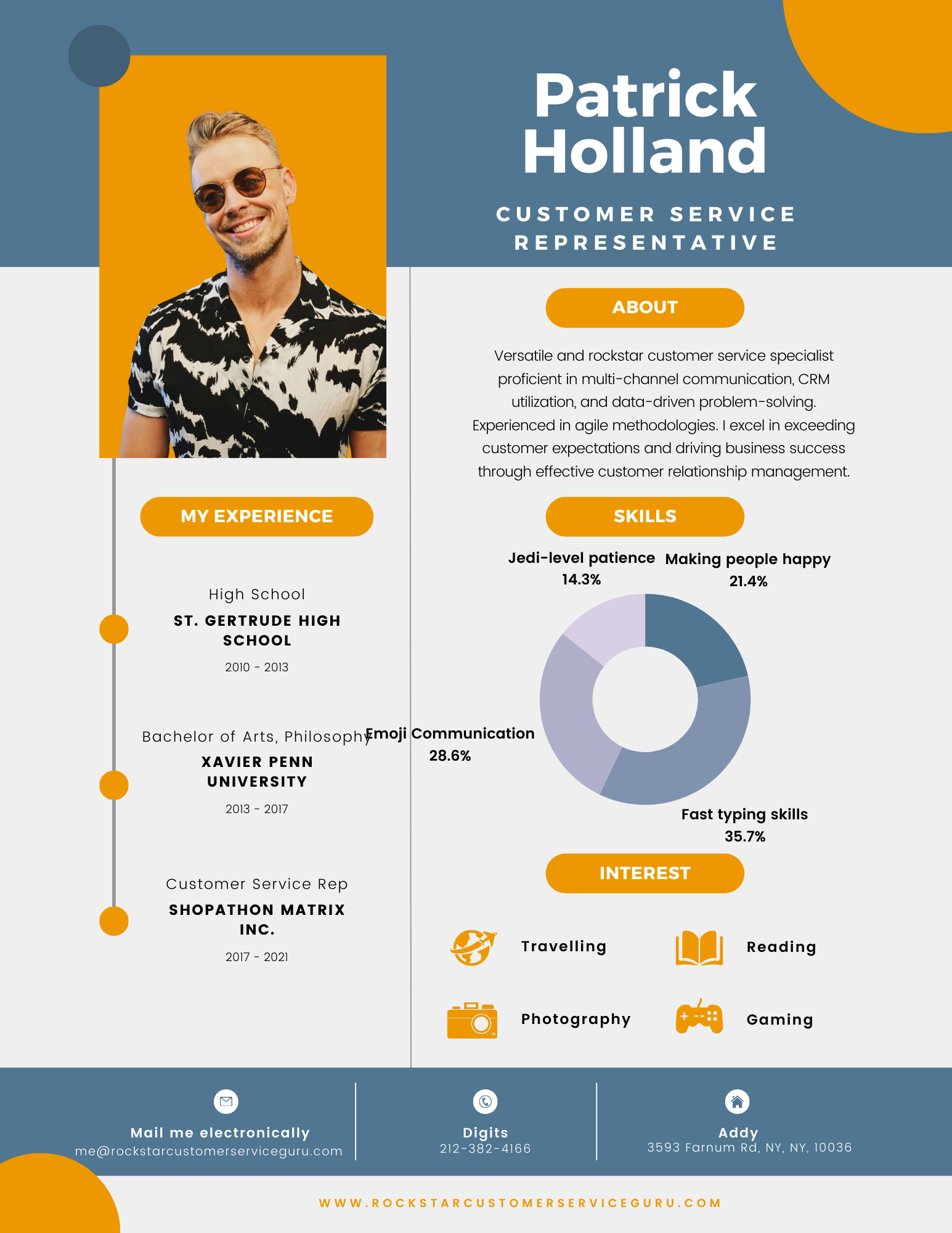
8. The bad formatting resume
A resume with bad formatting can be an eyesore and off-putting for hiring managers. When you think of a bad resume, the design is one of the easiest things to critique since it stands out to you. Bullet points that aren’t aligned, resume content that’s centered rather than left aligned, not enough or too much white space, changes in formats at different points in the resume, inconsistent punctuation, and so on could all create some of the worst resumes. You want your resume to be visually appealing so that there’s no distractions preventing the hiring manager from reading your resume. You don’t want your resume to be an eyesore where they notice inconsistencies instead of realizing how qualified you are for the role. The best way to prevent bad formatting is to use a resume template from a resume builder instead of downloading your own template and modifying it. You can find several stunning resume templates on Huntr where formatting will stay consistent, so you can present your work experience with no distractions.
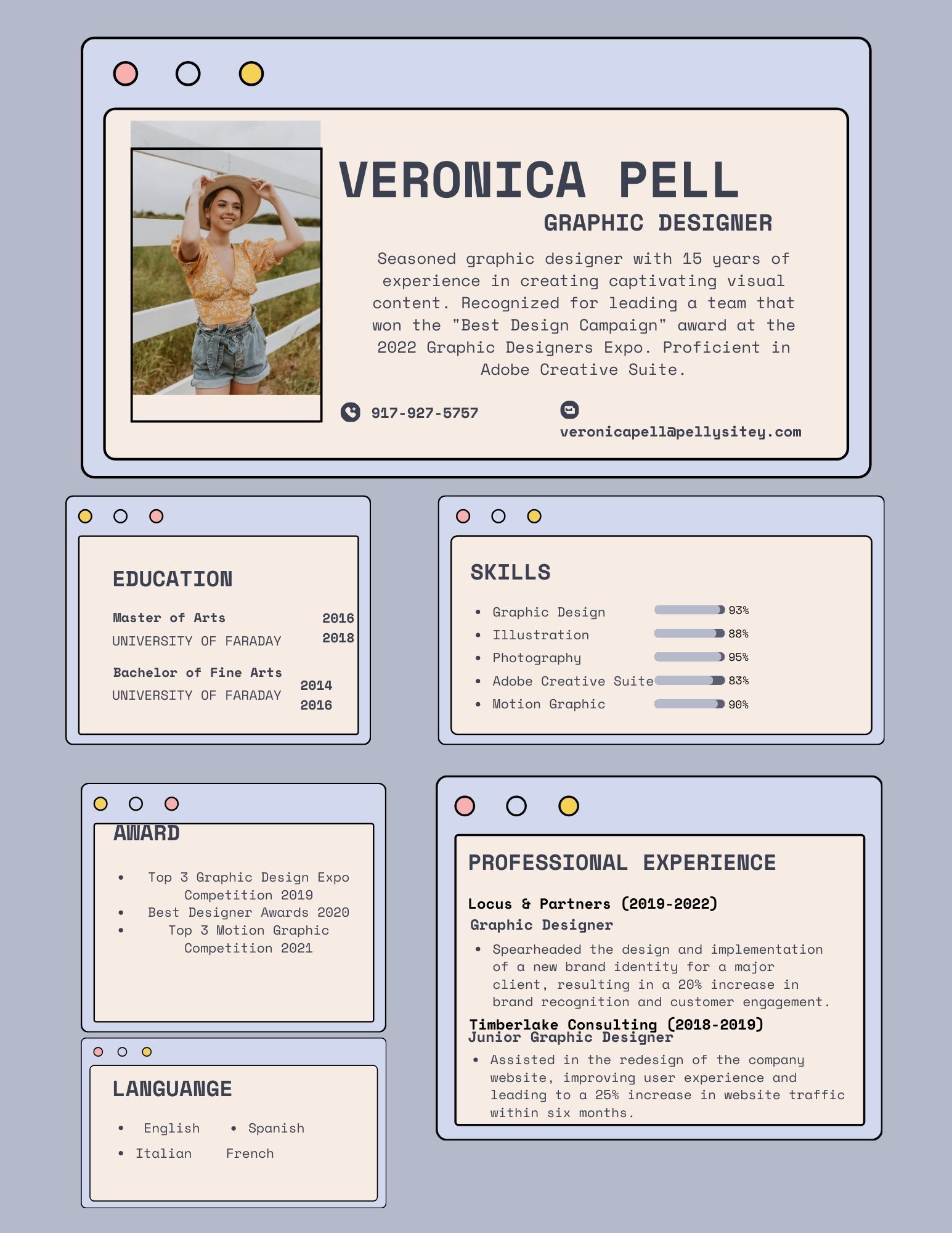
9. The plain resume
The worst resumes are boring to read. You’ll use plain descriptions in the bullet points or a standard resume summary instead of one that captures attention. What creates a boring resume is not being specific enough, being too generic, or using copy and paste content from other resumes that aren’t distinct to what you bring to the table. You don’t want to be too unfocused either. You want to tailor your resume so that it’s interesting to the person on the other end. If you use the same resume for every job, it’ll come across as generic which won’t interest the hiring manager at all. Having a base resume can allow you to pull points for a tailored resume. But your base resume shouldn’t be the one you apply to all jobs with. You have to add that bit of oomph to your resume to stand out amongst other candidates. You can add a QR code generated using Uniqode's QR Code generator to a video of yourself talking to add some personality, add links to a portfolio website with attention grabbing content, or showcase personality in other ways where your resume is the jump off point to get them to keep checking you out.
10. The super personal resume
Your resume should be detailed when talking about your professional work experience. But to avoid making a bad resume, you want to avoid mentioning things outside of your work history. For example, don’t share your political affiliations, sexual orientation, marriage status, family dynamics, salary expectations, reasons for leaving your last job, unrelated hobbies, and other personal information that don't belong on your resume. The worst resumes are the ones that get rejected. And including these kinds of personal tidbits about yourself will get you rejected fast due to a bias that gets added to your resume. Having these kinds of details on your resume is unprofessional. Avoid oversharing your life story or unnecessary information about yourself. Stick to the relevant work experience you have to come across as the ideal hire. Most employers are hiring you for your expertise, not your personality. As long as you seem kind and willing to grow, that's about as much personality as hiring managers are looking for beyond your work experience and soft skills.
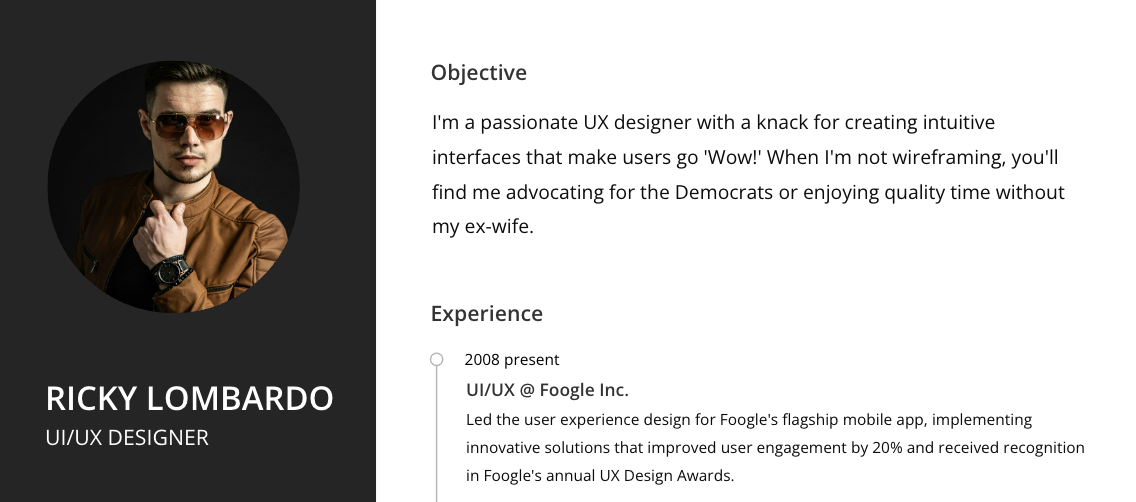
11. The terrible online presence
While this might not have to do with a resume per se, it still affects your ability to get hired. People will post their whole resume on LinkedIn hoping to get hired. But when you go through their comments on LinkedIn, you might find some not-so-nice comments. When people are employed, they’re under the impression that people can’t find their social media posts. But just as your public content can get you fired from a job, it can also prevent you from landing a job. In addition to a bad resume, the worst hire is the one who spends their time on social media writing negative comments on people’s posts, putting people down all day on social media. You’re allowed to disagree with opinions, but criticizing people publicly is going to come across poorly to future employers. Everything you post online will reflect on you just like your resume would. Having a bad resume is fixable, but a bad online presence will need a lot more work to make improvements upon.
12. The exaggeration resume
Having big accomplishments is worth celebrating. But if you can’t back your accomplishments up with proof, or if you exaggerate or lie on your resume, it could backfire on you. For example, if you say you’re fluent in Spanish, but making tons of grammatical mistakes in Spanish, it’ll come across as lying or an exaggeration. If you make a big claim, you need to back it up with data. Maybe showing a screenshot or having access to a tool that highlights the proof. Either way, having evidence to prove your claims on your resume, particularly with big accomplishments will help showcase you were telling the truth and are an extremely qualified candidate. Getting caught in a lie will turn a bad resume into the worst resume. So, when in doubt, try honesty.
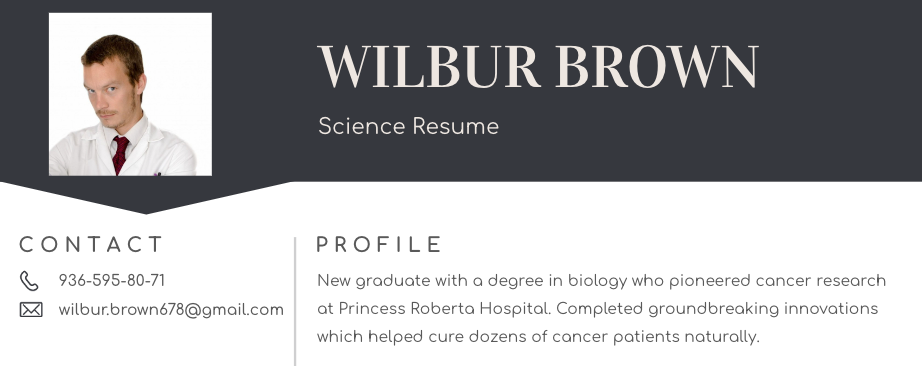
13. The unrelated resume
The worst resume is an unrelated resume. A hiring manager getting a resume from a completely unqualified candidate won’t be willing to entertain an interview with them, they’ll just instantly reject the candidate. For example, if all your professional experience is in the restaurant industry but you’re applying to be a marketer with zero education or professional experience, you won’t be considered. You need to have some evidence of initiative you’ve taken to learn the skill for the role you’re applying for. If you’re an entry-level candidate, you need to have done an internship, taken a course, or started a side hustle of some sort to practice the skills. Otherwise, there’s literally nothing that’s going to convince the interviewer that you’d be a good fit. You need to have some sort of connection or transferable skills to position yourself for a career change.
How to Avoid Creating a Bad Resume
Following the tips above will help ensure you don’t create the worst resume out there. Still, there are things you can do to avoid creating a bad resume. Using Huntr’s resume builder will help ensure you have a beautiful resume that looks professional, is properly formatted, includes relevant work experience through AI suggestions, and more. Huntr also has a built-in resume checker, also known as a resume grader, to help you catch buzzwords and other issues which could hold you back from getting an interview when you’re looking for your next role. If you’re looking to build a great resume, you can sign up for Huntr today!
Get More Interviews, Faster
Huntr streamlines your job search. Instantly craft tailored resumes and cover letters, fill out application forms with a single click, effortlessly keep your job hunt organized, and much more...
AI Resume Builder
Beautiful, perfectly job-tailored resumes designed to make you stand out, built 10x faster with the power of AI.
Next-Generation Job Tailored Resumes
Huntr provides the most advanced job <> resume matching system in the world. Helping you match not only keywords, but responsibilities and qualifications from a job, into your resume.
Job Keyword Extractor + Resume AI Integration
Huntr extracts keywords from job descriptions and helps you integrate them into your resume using the power of AI.
Application Autofill
Save hours of mindless form filling. Use our chrome extension to fill application forms with a single click.
Job Tracker
Move beyond basic, bare-bones job trackers. Elevate your search with Huntr's all-in-one, feature-rich management platform.
AI Cover Letters
Perfectly tailored cover letters, in seconds! Our cover letter generator blends your unique background with the job's specific requirements, resulting in unique, standout cover letters.
Resume Checker
Huntr checks your resume for spelling, length, impactful use of metrics, repetition and more, ensuring your resume gets noticed by employers.
Gorgeous Resume Templates
Stand out with one of 7 designer-grade templates. Whether you're a creative spirit or a corporate professional, our range of templates caters to every career aspiration.
Personal Job Search CRM
The ultimate companion for managing your professional job-search contacts and organizing your job search outreach.

